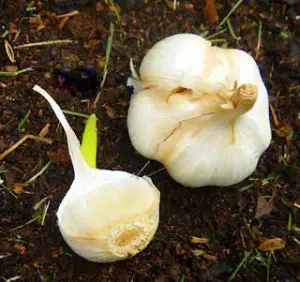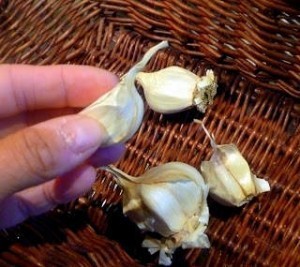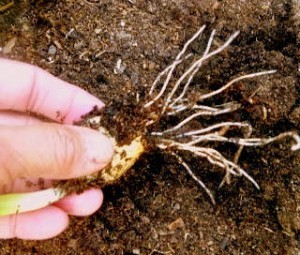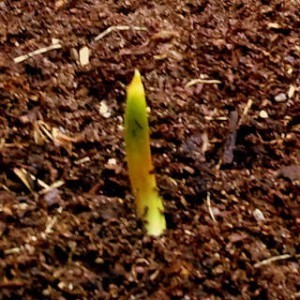Guest Post by Lisa from Fresh Eggs Daily
Grow your own Garlic (it’s easy!)
I have been wanting to try growing my own garlic for some time now. Not only do I cook regularly with fresh garlic and we eat a lot of it ourselves, I also supplement our chickens’ diet with fresh minced garlic as well as add whole cloves to their water.
It turns out that garlic is pretty easy to grow. You just basically stick a clove in the ground and in the spring you have an entire bulb. Okay, it’s not quite that easy, but almost! And the best part is that for the most part, insects leave it alone as do rabbits and moles.
Coincidentally, one of my favorite magazines Urban Farm featured an article on planting garlic this month in their September/October 2012 issue. So I was finally motivated to plant our first garlic crop.
Here’s what you do:
Although you can plant store-bought garlic cloves, it is preferable to find an organic bulb or local garlic at a farmer’s market, so you know it hasn’t been treated with any pesticides or chemicals.
Break the bulb into cloves and choose the largest cloves to plant. Be sure to leave the papery covering on them. Garlic prefers full sun and well-drained soil so plan your planting spot accordingly.
Plant the cloves tip side up about 4-6 inches apart and with the tip about 2 inches below the surface. You can mulch the cloves with about 4 inches of chopped straw, leaves or hay. The mulch will keep the soil a more even temperature through the winter which helps the roots remain in place and also helps to retain moisture and keep weeds down.
Plant in the fall to give the cloves time to sprout some roots before winter sets in. (This clove that I planted just last week already has some nice roots growing)
In the spring, when the shoots start to poke through, remove the mulch. Snap off any ‘scapes’, the thin curly stems that grow from the center of the clove. They drain energy needed to grow the new bulb.
The garlic is ready to harvest when the leaves turn brown. Dig up the bulbs and be sure to save the largest cloves to replant the following fall.
Companion Planting:
Garlic is a natural fungicide and pesticide, so it will reduce aphids on your tomatoes or roses. It also is a good companion plant for fruit trees, strawberries, cabbage, cauliflower and broccoli.
I planted six garlic cloves in our strawberry bed and mulched them with chopped straw for a comfy winter resting place.
http://fresh-eggs-daily.blogspot.com/





